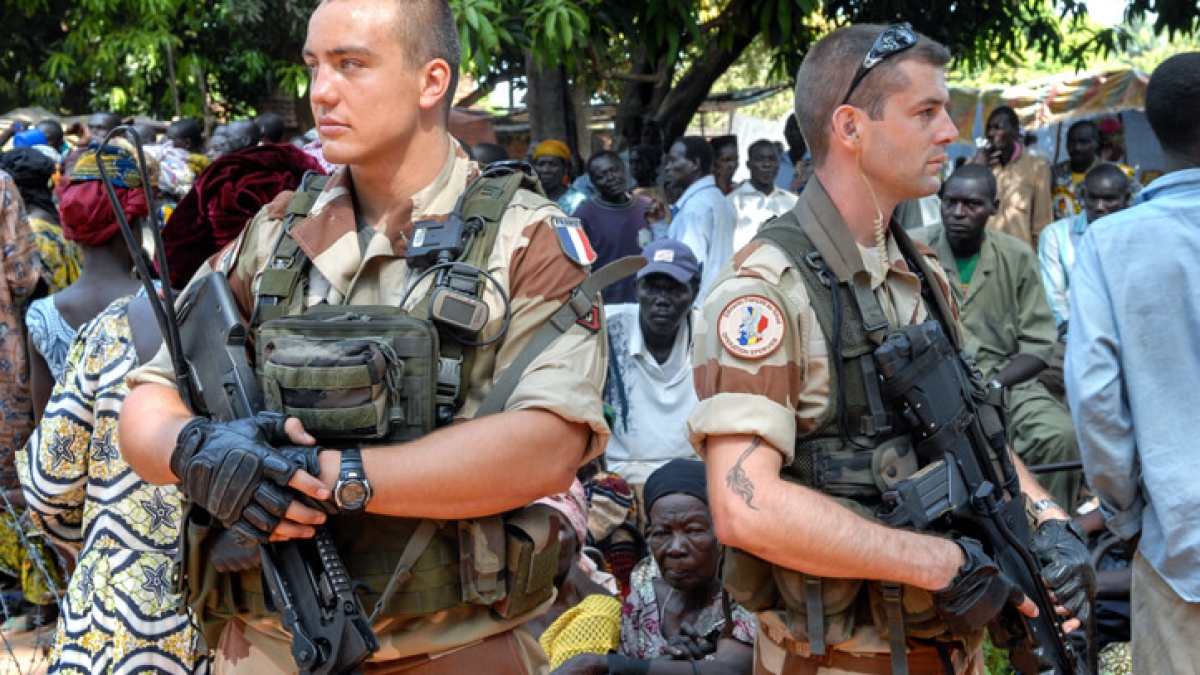A Month’s Notice: Why Burkina Faso Ordered French Troops out of the Country

Though it was clear that Burkina Faso was eventually going to follow in the footsteps of Mali and the Central African Republic (CAR), Ouagadougou’s decision to break military ties with France was not as simple as media sound bites want us to believe.
The conventional wisdom is that these countries are walking away from their former colonial master, France, to forge alternative alliances with a new ally, Russia. These convenient analyses are largely shaped by the geopolitical tug-of-war between old and new superpowers: The US and its NATO allies on the one hand, and Russia and China on the other.
Though global rivalry, especially on the resource-rich African continent, is an important component in understanding Burkina Faso’s decision - and earlier, similar decisions by Mali in April, and CAR in December - more attention needs to be paid to the logic of these African countries’ own political discourse.
On January 21, Burkina Faso officially asked France to withdraw its troops from the country within a month. French President Emmanuel Macron seemed perplexed by the request. He answered that he was awaiting clarifications from Burkina Faso's transitional President, Ibrahim Traore.
Paris’ confusion did not last long, however. “At the current stage, we don't see how to be more clear than this,” the Burkina Faso government’s spokesperson, Rimtalba Jean Emmanuel Ouedraogo, speaking on national television, said on January 23.
Ouagadougou’s decision was in reference to 400 French soldiers stationed in the country following a military agreement signed with Paris in 2018. But what were these soldiers doing in Burkina Faso, in the first place?
The agreement between Paris and Ouagadougou was part of a series of agreements signed between France and several African countries to form regional economic and military alliances, with the understanding that France would be helping these countries achieve stability amid threats of various militant groups.
Mali, which suffered a series of military coups and deadly rebellions that threatened to divide the country, was the focal point of the French military redeployment into Africa, resulting in the launch of several major campaigns starting in January 2013 with Operation Serval and, later, Operation Barkhane.
As time passed, the French government claimed one victory after another against various militant groups, always rationalizing its action as part of regional accords signed per the invitation of African countries, which are mostly based in the Sahel region.
Critics often hit back, saying that France, which effectively controls the economies of fourteen African countries by having a major stake in their currencies and national reserves, is not an equal partner in Africa, but a meddler.
The latter claim began acquiring more credibility, as there was no proof that Operations Serval and Barkhane achieved their intended goals, or that any of the countries involved in the French scheme achieved political or economic stability.
Though military coups were a common occurrence in many African countries following the formal end of colonialism on the continent, the new governments in Mali, CAR, and Burkina Faso used a different kind of political discourse, which accused the former regimes of treason, while also blaming France for much of these countries' corruption.
Burkina Faso was not the exception.
On September 30, a military coup in Burkina Faso overthrew the government. Anti-French sentiments were apparent in the language and chants on the streets, and the French flag was repeatedly burned and replaced by the Russian flag.
This is where news analyses often go wrong. When Russian flags were raised in abundance in the streets of Burkina Faso, many assumed that the entire spectacle was an outcome of French-Russian rivalry in that region. Though this geopolitical conflict is real, the behavior of Burkina Faso’s Traore’s government cannot be reduced to political opportunism and military or financial bribery.
Like Mali and CAR - and other African countries - Burkina Faso never had real political margins that would allow it to operate independently from its former colonial masters. These margins did exist but were almost completely shut down following the collapse of the Soviet Union. The USSR was seen as a trusted ally by various African governments, which used Soviet support to balance out Western influences and pressures on the highly contested continent.
The demise of the USSR meant the end of that balancing act and the full return of Africa to the grip of the western sphere.
The changing global political dynamics resulting from the US/NATO-Russia/China rivalries have, again, opened some of these margins. The countries that dared to be first to cross to the other camp - Mali, CAR, and now Burkina Faso - were the countries that had little to lose as a result of this political gamble. They enjoyed no political stability, little sovereignty, and no economic prospects.
This means that the future could also witness more such geopolitical shifts. The nature and speed of these shifts will be largely determined by the outcome of the ongoing global conflict.
Burkina Faso’s decision to order French troops out of the country had something to do with global geopolitics, but only in terms of timing. The actual reason is that the French military presence in the country was of no real benefit to Burkina Faso. Ouagadougou seems to have reached the same conclusion as Bamako and Bangui did in the previous month. Indeed, it was only a matter of time.
















